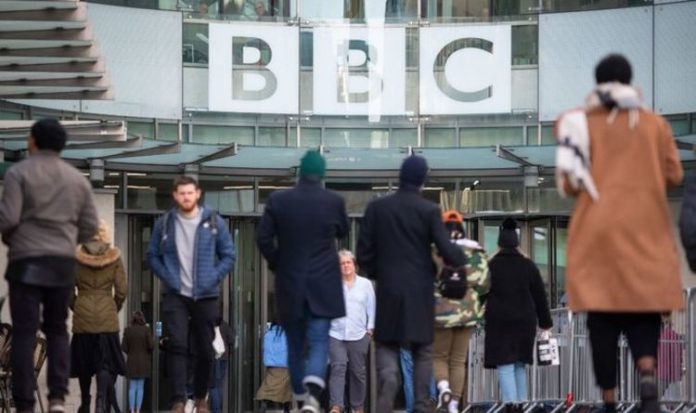The corporation’s annual report revealed 106 senior managers earn more than the Boris Johnson’s £150,000 annual salary while 76 of its on-air talent are also on a better wage than the PM. The report also showed there were now more senior managers at the broadcaster than last year and that some BBC stars had enjoyed big pay rises despite a worsening financial outlook.
Bosses have been told to make savings of £125 million this year because of the pandemic and have announced a swathe of job cuts in its news division.
New director-general Tim Davie said he expected stars to work at the BBC for lower pay than at competitors but said it was a “punchy” market.
The names of BBC talent earning more than £150,000 are published under rules brought in by the Government.
Radio 2 Breakfast Show host Zoe Ball is now earning £1.36 million, with her pay bracket up by £990,000.
Last year’s figures put her on about £370,000, but she had only just replaced Chris Evans on the airwaves.
Fiona Bruce moves up the published pay figures by £195,000 to around £450,000, now she is hosting Question Time.
READ MORE: Disaster for BBC as 237,000 families stop paying licence fee
Graham Norton is on at least £725,000 – a rise of around £115,000.
The salary is for his Radio 2 show and TV work like fronting the Baftas – he fronted the film awards for the first time this year – but not his chat show.
Newsnight’s Emily Maitlis’ pay is on around £370,000 – with her pay bracket rising by around £110,000.
The report said Mr Davie earned £642,000 last year as boss of BBC Studios, which is not funded by the licence fee and will be taking a pay cut this year.
Total board and executive committee pay totalled £5.8 million – up from £5.4 million the previous year.
A BBC spokesman said: “Some measures are not going in the right direction.
“Headcount has increased from 19,231 to 19,572 and senior leader numbers have gone up from 250 to 253.
“As the new director-general has said, the BBC will keep a focus on cost reduction so that the public service headcount is smaller.
“The BBC also has to do more to better serve and reflect all licence fee payers. It is critical that the BBC gets this right.”







